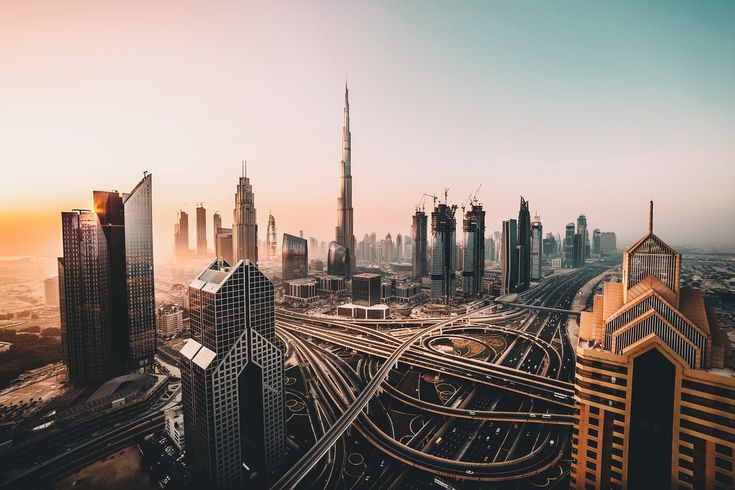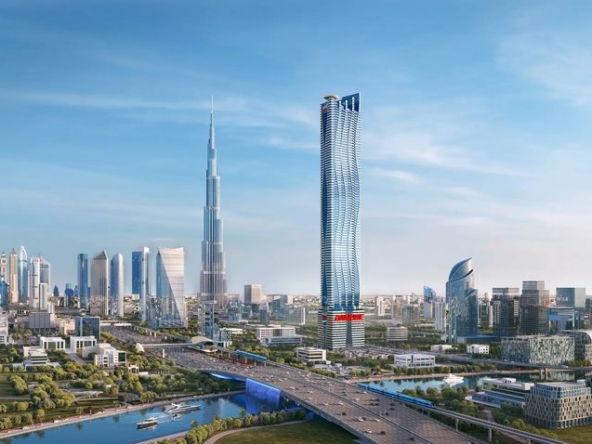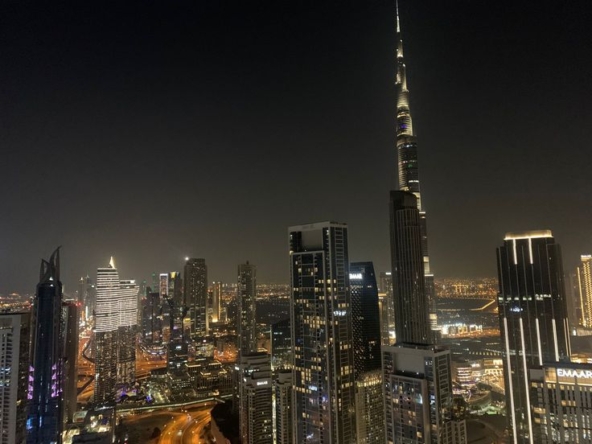3 differences between short-term and long-term investment returns in Dubai
Dubai is one of the most attractive investment destinations for investors from around the world, thanks to its thriving economy, world-class infrastructure, and a real estate market that offers exceptional opportunities. However, when it comes to real estate investment in Dubai, investors face an important choice: should they aim for short-term or long-term investment returns?
In this article, we will discuss in detail three key differences between short-term and long-term investment returns, as well as answer the questions that may arise in the mind of any investor before entering Dubai’s real estate market. With this comprehensive guide, you will be able to make an informed investment decision that aligns with your financial goals.
What is Return on Investment (ROI)?
Return on Investment (ROI) is a financial metric used to assess the success or profitability of a specific investment. It is calculated by comparing the profits generated by the investment to its total costs. In other words, it’s the percentage that expresses how much profit you make for every monetary unit you invest.
For example, if you purchase a property worth AED 1,000,000 and generate an annual return of AED 100,000, the annual ROI would be 10%.
Importance of ROI:
- Helps investors make informed investment decisions.
- Can be used to compare profitability across different types of investments.
- Indicates the efficiency of the investment and its ability to meet financial goals.
What is ROI in Dubai?
The ROI in Dubai’s real estate market is considered among the highest globally. Dubai is renowned for its thriving investment environment, which combines economic stability, advanced infrastructure, and investor-friendly regulations.
Reasons for High ROI in Dubai:
- High rental yields: Strong demand for rentals, particularly in key areas like Downtown Dubai and Dubai Marina.
- Low taxes: Dubai adopts an investor-friendly tax policy with no income or rental taxes.
- Stable investment environment: Transparent and clear laws for investors, reducing legal risks.
- Population and tourism growth: The influx of expatriates and tourists increases demand for properties.
Average ROI in Dubai:
- In luxury residential areas like Palm Jumeirah, ROI ranges between 5% and 6%.
- In mid-range areas like Business Bay, ROI ranges between 6% and 8%.
- In emerging areas like Dubai South, ROI can reach 10% or more.
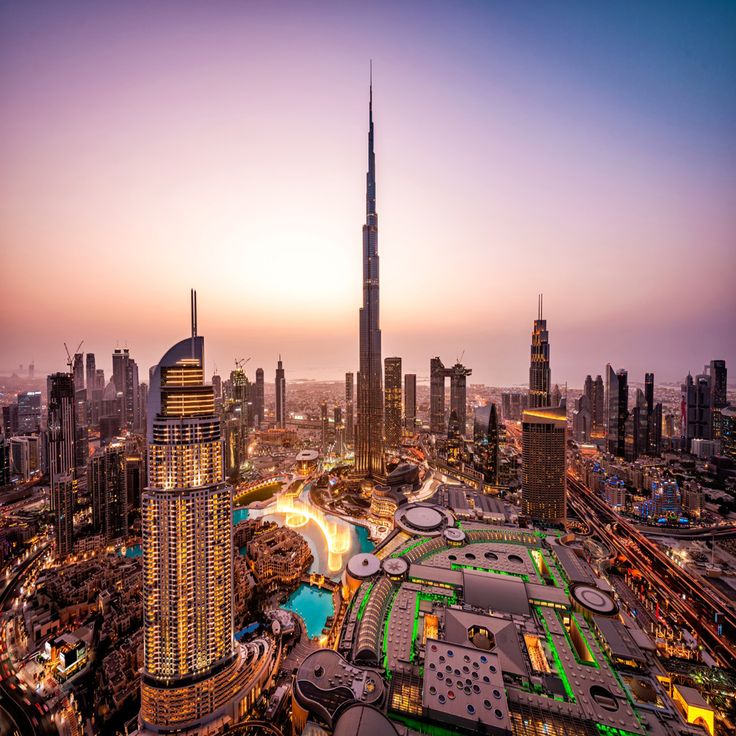
Key Differences Between Short-Term and Long-Term Investment Returns in Dubai
First Difference: Time to Achieve Returns
Short-Term Returns:
Short-term returns refer to profits generated over a short period, typically between 6 months and 3 years. In Dubai’s real estate market, short-term returns are often achieved through:
- Reselling properties: Investors purchase properties in the early stages of development (Off-Plan) and sell them once the value increases.
- Short-term rentals: Renting out furnished properties or vacation homes via platforms like Airbnb.
Advantages of Short-Term Returns:
- Quick profits without a long waiting period.
- Opportunity to benefit from seasonal real estate market fluctuations.
- Ability to reinvest capital into new opportunities after a profit is realized.
Disadvantages of Short-Term Returns:
- Price volatility: Profits rely on the right timing for sale, making it vulnerable to market changes.
- Additional costs: Such as maintenance, marketing, and taxes related to sales or rentals.
- Time pressure: Achieving short-term returns requires precise and quick property management.
Long-Term Returns:
Long-term returns are achieved by holding onto a property for extended periods, usually over 5 years, relying on rental income or gradual increases in market value over time.
Advantages of Long-Term Returns:
- Financial stability: Provides consistent and sustainable rental income.
- Property appreciation: Over time, property values in Dubai tend to increase, especially with ongoing infrastructure development.
- Lower risk: Market fluctuations have less impact compared to short-term returns.
Disadvantages of Long-Term Returns:
- Long waiting periods to realize profits.
- Prolonged financial commitment.
- Rental income may be affected during economic downturns.
Second Difference: Level of Risk
Short-Term Returns:
Short-term investments are considered riskier as they depend heavily on the timing of buying and selling and the market’s state during the short investment period. Poor decision-making can lead to financial losses.
Risks Associated with Short-Term Returns:
- Market fluctuations: Property values may drop suddenly, leading to losses.
- Administrative costs: Fees for real estate agents, maintenance, and marketing.
- High competition: In luxury or tourist-driven real estate markets, achieving quick returns can be challenging.
Long-Term Returns:
On the other hand, long-term returns are relatively less risky as they depend on market stability and the growing demand for properties over time. However, this type of investment is not entirely risk-free.
Risks Associated with Long-Term Returns:
- Ongoing costs: Regular maintenance and service fees.
- Changes in real estate regulations: Amendments to property laws could impact investor returns.
- Economic downturns: Periods of recession may reduce rental income or delay property value appreciation.
Third Difference: Investment Goals
Short-Term Returns:
The primary goal of short-term investments is to generate quick financial gains. This type of investment is suitable for:
- Investors seeking quick profits by reselling properties.
- Individuals who prefer frequent trading of real estate.
- Experienced investors who can read market trends and make fast decisions.
Long-Term Returns:
The investment goals for long-term returns are more stable and include:
- Building sustainable wealth over years.
- Securing consistent income from rentals.
- Benefiting from property appreciation over time.
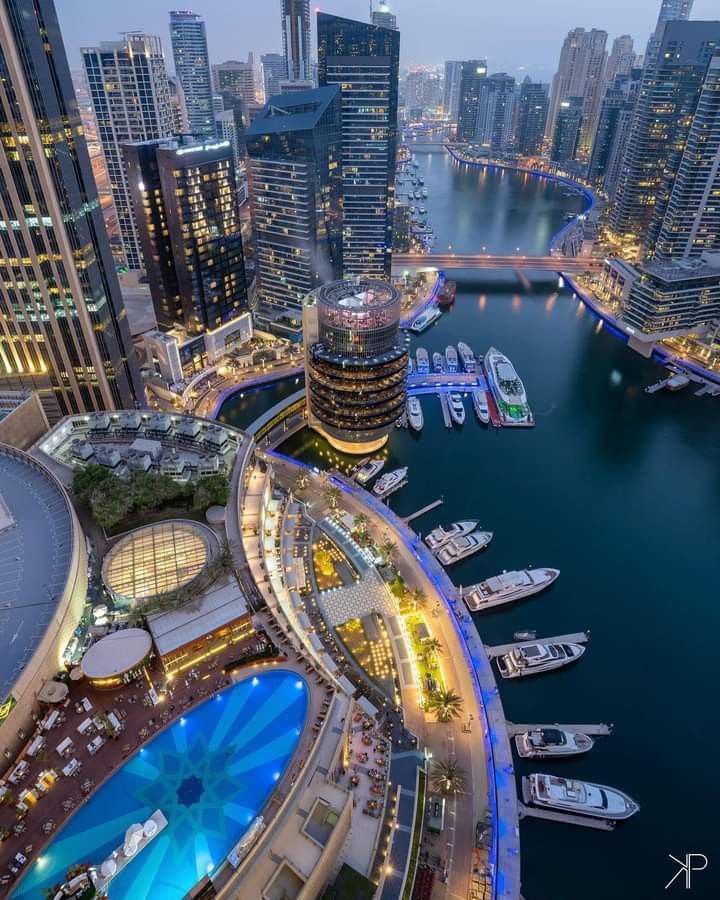
Everything You Need to Know About Real Estate Investment in Dubai
1. Why is real estate investment in Dubai a profitable choice?
Dubai offers an ideal investment environment thanks to its advanced infrastructure, sustainable economic growth, flexible regulations, and high demand for properties from both locals and expatriates. Additionally, it is free from income and rental taxes, making it an attractive destination for investors.
2. What is the ROI in Dubai compared to other global cities?
The ROI in Dubai ranges between 5% and 10%, which is higher than in many major cities like London or New York, where the ROI typically ranges between 2% and 4%.
3. Is real estate investment in Dubai suitable for residents and non-residents?
Yes, Dubai’s freehold property laws allow foreigners to own properties in designated freehold areas without requiring residency.
4. What types of properties can be invested in Dubai?
- Residential apartments.
- Luxury villas.
- Commercial properties (offices, retail shops).
- Tourist properties (hotels and furnished apartments).
- Land.
5. What is the difference between buying a ready property and an off-plan property?
- Ready properties: Can be rented or used immediately.
- Off-plan properties: Purchased at a lower price during the development phase, with the potential to sell later at a higher price once completed.
6. What are the property ownership laws in Dubai?
Dubai allows foreigners to own properties in designated freehold areas. Ownership can be for life or for a specified period (99 years).
7. What documents are required to buy a property in Dubai?
- Passport.
- Emirates ID (for residents).
- Sale and Purchase Agreement (SPA).
- Bank transfer proof for the down payment.
8. Are there any restrictions on renting properties in Dubai?
There are no major restrictions, but all lease contracts must be registered with the Ejari system, a government platform that ensures the rights of both landlords and tenants.
9. Are there any taxes on properties in Dubai?
Dubai does not impose income or rental taxes. However, there is a 4% registration fee on the property value and annual maintenance charges.
10. How can I ensure the property is legal?
You can verify the property and the developer’s status through the Dubai Land Department (DLD).
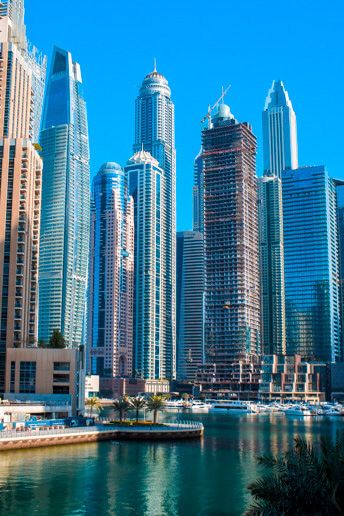
11. How is ROI calculated?
ROI is calculated using the following formula:
ROI = (Net Annual Income ÷ Property Cost) × 100%
12. Which areas in Dubai offer the highest ROI?
- Dubai Marina: ROI ranges between 6% and 8%.
- Downtown Dubai: ROI between 5% and 7%.
- Business Bay: ROI up to 8%.
- Dubai South: ROI can exceed 10% due to new projects.
13. What factors affect ROI?
- Property location.
- Type of property (residential or commercial).
- Real estate market conditions.
- Quality of construction and services.
14. Do luxury properties provide good returns?
Luxury properties yield good long-term returns and target high-end tenants. However, they may have lower demand compared to mid-range properties.
15. How does short-term rental affect ROI?
Short-term rentals generate higher ROI in tourist areas but require intensive management and higher maintenance costs.
16. Can I get a mortgage in Dubai?
Yes, banks in Dubai offer mortgages to residents and non-residents, provided that they have a stable income and documents proving their repayment ability.
17. What are the requirements for obtaining a mortgage?
- A down payment ranging between 20%-25%.
- A stable monthly income.
- A good credit history.
18. Can cryptocurrencies be used to buy property in Dubai?
Some developers accept cryptocurrencies. However, it’s important to consult legal experts to ensure the transaction complies with regulations.
19. What are the risks associated with real estate investment in Dubai?
- Real estate market fluctuations.
- Administrative and maintenance costs.
- Economic downturns.
20. How can I avoid risks?
- Choose properties in high-demand locations.
- Work with reliable developers and real estate companies.
- Consult a legal advisor before completing the transaction.
21. Can property prices decrease in Dubai?
Like any real estate market, prices can be affected by economic or political factors. However, Dubai has demonstrated strong resilience and quick recovery.
22. Is investing in tourist properties profitable?
Yes, renting out tourist properties in Dubai offers high returns, especially during peak seasons.
23. What are the best areas for tourist properties?
- Palm Jumeirah.
- Dubai Marina.
- Downtown Dubai.
24. What are the challenges of short-term rentals?
- High administrative costs.
- Frequent maintenance.
- Seasonal demand.
25. Is long-term investment in Dubai better than short-term?
It depends on your investment goals. Long-term investments provide financial stability and sustainable income, while short-term investments offer quicker profits.
26. Is Dubai’s real estate market sustainable in the long term?
Yes, thanks to continuous infrastructure development, population growth, and increasing property demand.
27. What are the future expectations for Dubai’s real estate market?
- Increased demand for residential and commercial properties.
- Continued development of mega-projects like Expo City Dubai.
- Stable prices with high ROI.
Real estate investment in Dubai is a profitable opportunity, provided you thoroughly study the market and understand the differences between short-term and long-term returns. By addressing frequently asked questions, you can make informed decisions to ensure sustainable financial returns.
Start your investment now in one of the world’s top investment destinations!

